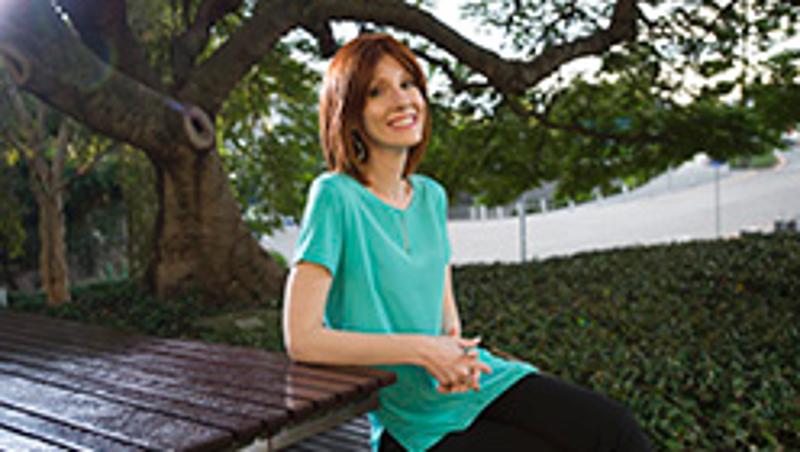
QUT researcher Danielle Tindle is living proof her research and advocacy can be used to help to improve the lives of other young people diagnosed with cancer.
The 36-year-old research assistant from QUT’s Institute of Health and Biomedical Innovation is again battling cancer, a rare form of neuroendocrine carcinoma that has occurred in the larynx.
Treatment of the cancer requires expensive fortnightly immunotherapy in a private hospital in Brisbane.
Dr Tindle was diagnosed with cancer for a second time while completing her PhD at QUT titled: “Creating meaning: the cancer survivorship experiences of young adults in Australia, England and the United States”.
“I just haven’t stopped for the past 12 to 14 years,” she said. “I feel like I can provide a voice for young people and cancer patients who often feel they’re subordinates in any decisions surrounding their health.”
Dr Tindle featured on ABC Television’s Australian Story, firstly in 2005 when her father QUT Adjunct Professor Robert Tindle’s stem cell research was integral to her survival against Hodgkin’s lymphoma.
More than a decade after the first program, Australian Story revisited Dr Tindle, her family, friends and specialists in a story titled: Your Money or your life, which aired Monday night.
Dr Tindle was conferred with her PhD during a QUT ceremony in June last year.
“A couple of weeks after graduation the tumour had grown in my throat,” she said. “I had trouble with eating, swallowing and breathing.”
Dr Tindle said the rarity of her disease meant no clinical trials had been conducted to open the way to more affordable treatment that is subsidised by the Pharmaceutical Benefits Scheme.
“My kind of cancer is so rare it can’t be part of a trial and there is no stock standard therapy for it,” she said.
“This new immunotherapy treatment has proved to be effective for me but it is not recognised as a standard treatment for my type of rare cancer.”
Dr Tindle described herself as a “patient, professional, advocate and academic”.
When working at the former Royal Children’s Hospital in Brisbane, she was integral in establishing a Queensland-wide cancer care program that specialised in support for adolescents and young adults with cancer (AYA cancer).
“Young adult cancer survivorship is poorly understood,” Dr Tindle said.
“Most of my Australian study participants had never met another person who had cancer which left them often isolated and lonely.
“Now there are more medical, nursing and allied health professionals working in adolescent and young adult cancer care who can discuss how to manage difficult life questions regarding relationships, body image, fertility preservation, education and career options during and after treatment.
“Young cancer survivors reprioritise what they find meaningful in everyday life.
"They feel that their time is precious so energy and time are spent doing things rather than having things.”
Dr Tindle is available for interview upon request.
High res images are also available to media.
Media contacts:
Debra Nowland, QUT media officer (Mon/Wed/Thurs), 07 3138 1150 or media@qut.edu.au
After hours: 0407 585 901




